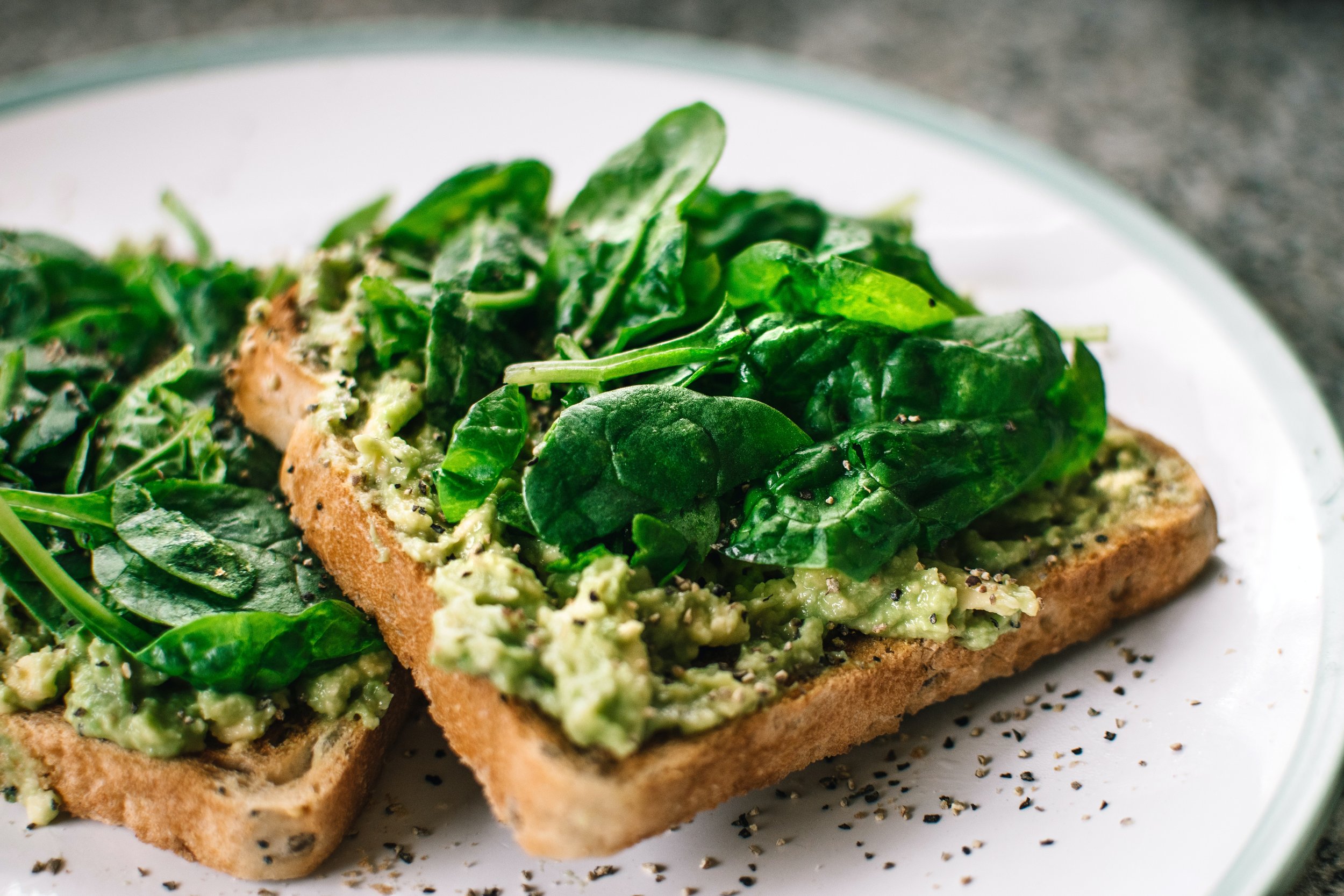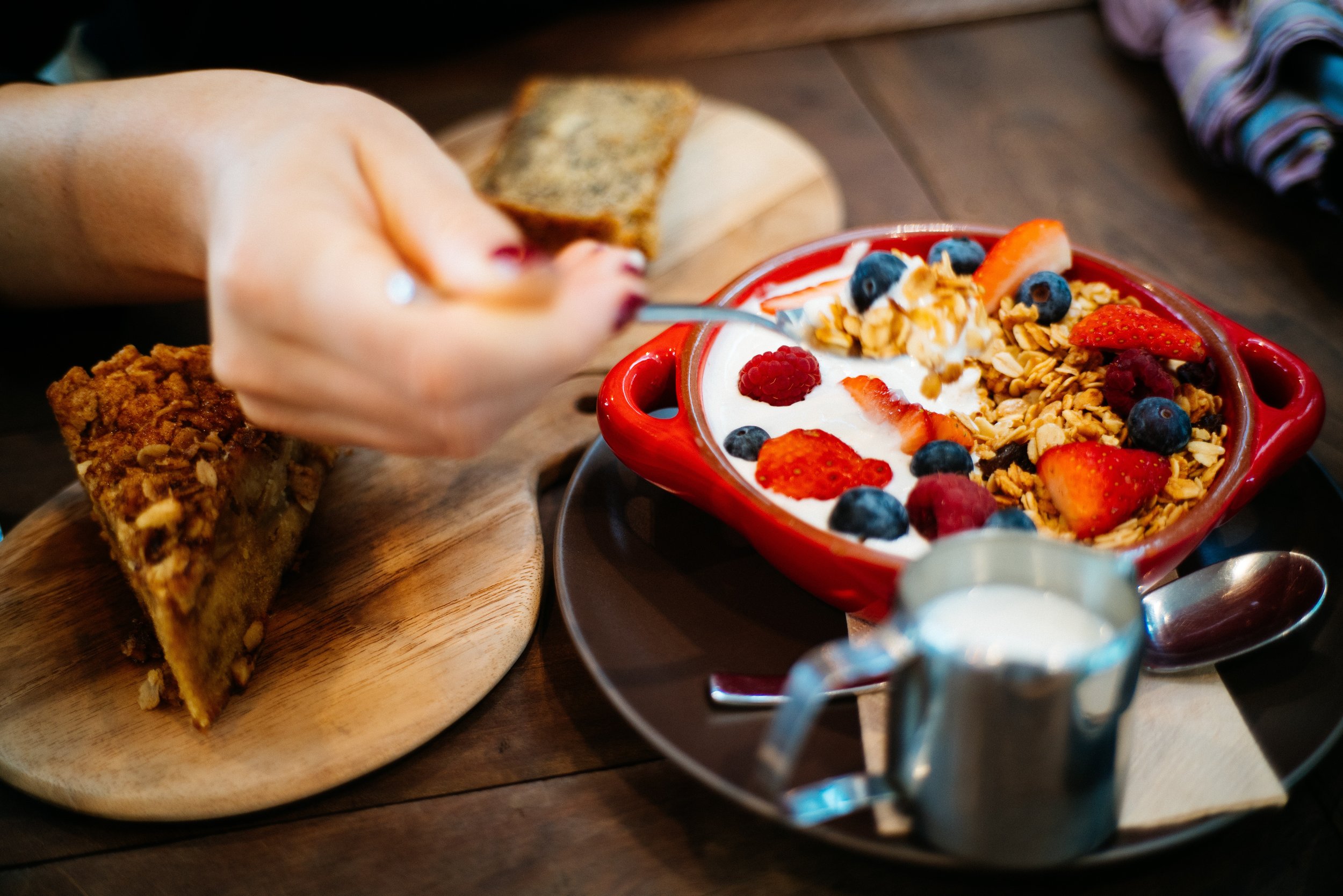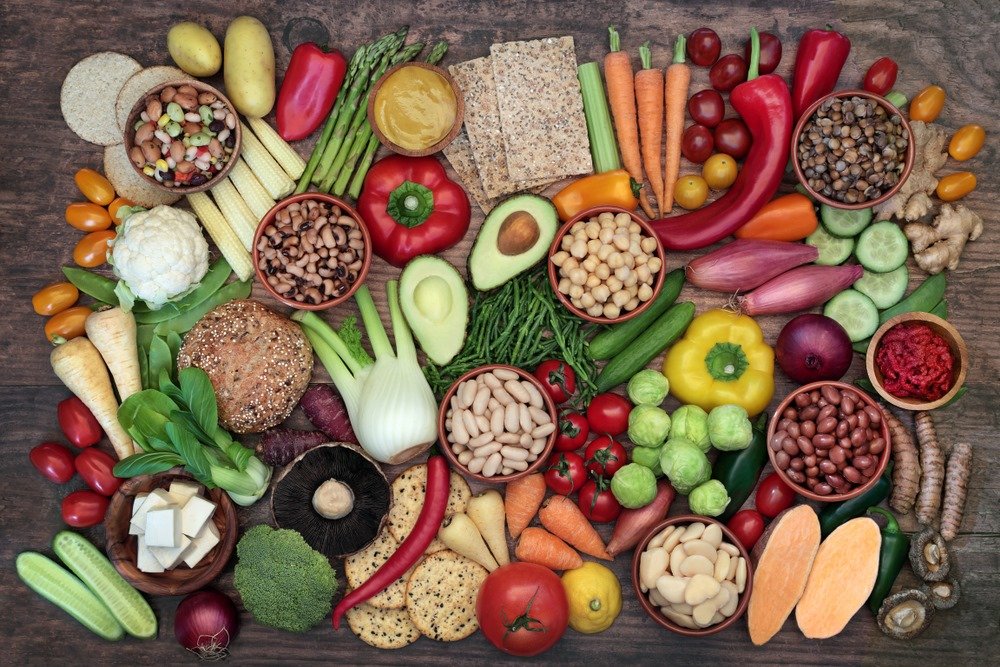Eating Well
The Autumn Pantry
A new season is here and while we can tend to carry on as we always do, it can benefit us to pay attention and gently shift our daily routines to match with the season. It is time to eat more warming foods and cooked foods. It is a good time for a daily walk outside- perhaps in the middle of the day as the days get shorter. It is time to slow down a bit and move more inward, as we move toward winter. It is time to support the immune system to be ready for the winter viruses.
A Plant Based DIet
Veganism has been around for a while, but I prefer another term- whole food plant based eating, because it refers to a sustainable, high quality way of eating which has good evidence for longevity. There are so many processed vegan foods around nowadays, that you can eat a high junk, high processed, high convenience food, and high poor quality fat vegan diet, and for this, there are poor outcomes.
Whole Food Plant Based eating is a term given to eating a diet of mainly plant foods, but it is a high quality diet with foods that mainly look like the original plant i.e. whole foods. It is a way of eating that has plenty of fruits and vegetables, often a large amount of them raw- and wholegrains, legumes, and small amounts of nuts and seeds. Generally it is much lower in overall fat that an omnivorous, or poor quality vegan diet.
A Healing Diet
What is a healing diet?
Over the years I have experimented with many different ways of eating. Most had something to offer at the time. I have had a chronic condition- Hashimoto’s, a thyroid autoimmune condition- so have experimented with different ways to feel better. My condition has been mild compared to many, but perhaps that’s because I have managed it ok.
One factor common to many diets which have been called “healing diets” by many people looking for a way to resolve and reverse their chronic disease, is reducing or eliminating processed foods. What we call junk foods, but also most packaged foods with multiple ingredients. And returning to an unprocessed food diet- the original nuts and bolts of food- fruit, vegetables, whole grains, legumes, and for some, meat, seafood and/or dairy. So the paleo and keto diets do this, and this may be a large part of their success for some people.
For others, eliminating or reducing meat, seafood and/or dairy has been a significant part of their healing journey.
Carb Phobia & Fibre
A low carb diet, which is very popular, is generally a high meat diet. We know there are issues with this, but yes, it can help you lose weight. However it’s generally not sustainable and not very healthy overall. It is a recipe for heart disease and other issues, and some of these low carb diets, like Atkins, are linked to a lower life expectancy. So you can be skinny and dead.
High carbohydrate foods cover a wide range of foods. From ice cream to pizza to a serve of brown rice or a sweet potato. Obviously, all carbs are not the same, yet they tend to get lobbed into the same evil category in the current war against carbs and sugar. (This war is an inevitable backlash against a culture that eats a lot of poor quality carb foods, but it is still a fad).
Is Canola ok?
Canola oil is in most processed foods you buy, including many ‘health foods’, and is the 3rd largest oil used by volume worldwide (after palm and soybean oils). It is promoted as having similar benefits and fatty acid profile to olive oil (it is high in monounsaturated fatty acids), and is cheaper. Since the benefits of olive oil have been well studied and accepted, there has been a worldwide push to promote canola oil as a less expensive substitute with similar benefits.
But is it true? Online you can find a lot of conflicting evidence and opinions around this. However, there is no such conflict around olive oil- it is only associated with positive health benefits.
There are studies which show that canola can lower your cholesterol, increase Vit E and improve insulin sensitivity. However many studies around canola are industry-funded, which can reduce their validity. There are also studies which show it is not beneficial for the heart.
Canola oil is a highly processed oil, highly refined, which significantly reduces its nutrient content. It goes through an extensive process to give the apparently natural oil we see on the supermarket shelves. Wheras olive oil can be purchased minimally processed- just cold pressed.
2 & 5
According to the latest Australian census information.....6.1% of Australians met the daily minimum recommendations for fruit and vegetable intake. Which is 2 pieces of fruit, and at least 5 servings of vegetables.
A serving is 1 cup tightly packed raw, or 1/2 cup cooked.
6.1%.
Those 2&5 recommendations aren't the optimal that I would recommend for healing from chronic disease- they are fundamental for basic health. They provide enough fibre, and colourful plant nutrients to help prevent cancer, and many other chronic diseases.
Insulin Resistance
I get why it’s confusing, if you have insulin resistance, are prediabetic, and looking for a way to make your numbers better. I had a client today who was exasperated. She reads the low carb ‘experts’, and they say to eat plenty of good fats and hardly any carbs (sugar is the devil incarnate) and definitely avoid fruit (except for a small serving of berries). You read other ‘experts’ and they talk about low-fat, plant-based being the way to go. And plenty of variations on these themes, such as the Mediterranean Diet.
Everyone is looking at one piece of the puzzle, one possible approach, one part of the science, and then investing their career and marketing the hell out of it. So be careful when you go with someone who has an investment, has written a book, and built their career around a particular approach. They immediately have a bias. It may have worked for them. At least when they wrote the book. But is it right for you?
Intermittent Fasting
Intermittent fasting (IF) has become very popular and it is not surprising. It promises better health and weight loss, just by narrowing the hours in the day when we eat. This is something many women have learned to do anyway, by skipping breakfast or other meals to minimise calorie intake and manage their time deficit.
There is also quite a lot of evidence (https://pubmed.ncbi.nlm.nih.gov/34579056/) reported to show that IF can help to improve insulin resistance, lower blood glucose and triglycerides, improve immunity, improve brain health, normalise fat metabolism and improve longevity. One of the problems is that most of the studies done have been done on men, and very few are women specific. Those that are point to women’s metabolisms suffering with IF in ways that are not often discussed. This article goes into this in more depth, but below I discuss the reasons I spend more time discouraging women from IF, than encouraging them.
Easy ways to Detox
Our bodies do a good job of detoxing. They are built to detox. The bowels take toxins out of the body. The kidneys filter and excrete through urine. The liver filters and transforms toxins with complex chemical reactions. The skin excretes toxins through sweat. We even breathe out toxins through our lungs. That’s a very simplistic overview, but it’s the gist.
So what’s the big deal about needing to ‘detox’? Well, there are a couple of things.
Eating Disorder Risks
Eating disorders are rife in our culture, and one of the biggest risk factors for developing an eating disorder is following an extreme diet. This means a diet that, for example, leaves out or minimises a food group (fat or carbs); is extremely low calories (eg 1200 calories); separates a person from being able to eat with family or socially; or cuts out animal products (vegan or vegetarian diet). While some people can do these things without developing an eating disorder, they are red flags and make a person 12-18x more likely to develop an eating disorder.
Other risk factors are so common that we may not even recognise them as risk factors for an eating disorder. For example, it is common to have an unhealthy body image. This means hating one’s body for how it looks. Weight stigma is also so common, and subtle criticism by others- family, social groups and the media- can cause an intense body dissatisfaction feeling, leading to damaging behaviours.
Binge Eating
Binge eating is always associated with food restriction. So many of my women clients are trying to lose weight but struggle with binge eating, which is terrible for their self-esteem. They feel they have no willpower, so there must be something wrong or weak about them.
However if you try to eat too little, your body will override your willpower. …….
Coffee & the Heart
More good news for those who love their coffee.
Coffee has positive effects on the cardiovascular system, with 2-3 cups a day showing the most benefit (more or less than that, less so for most conditions)……
Local......Mediterranean
There are many, many foods that are grown well here in WA. We have a Mediterranean climate, like the west coast of America, and the southern European countries. This means cool, wet winters, and hot dry summers. These conditions are different to the east coast of Australia, where the rain is more evenly distributed throughout the year.
The traditional Mediterranean way of eating is well studied and one of the healthiest on the planet. It promotes lower levels of cancer, cardiovascular disease, blood sugar issues and dementia. It promotes longevity. Here in Perth and the south-west we are in a win-win situation. Many Italian and other southern European families have grown food here for generations, and some still do in some suburbs of Perth.
Avoid Cancer
10 Recommendations on how to protect yourself against cancer, by the American Institute for Cancer Research
Anti-Cancer Diet
The American National Cancer Institute has spent over $20million on a research campaign to determine the most cancer protective foods that we can include in our daily diets. This is what it came up with:
Diets that are based on plant foods, including lots of vegetables, fruit, wholegrains and legumes, are linked to lower rates of cancer. All vegetarian diets (including those which are vegan, include eggs, or include meat or fish up to once a week) are associated with overall lower rates of cancer.
Coffee & Alzheimer's
Drinking more than 1 cup of coffee daily may reduce the risk of Alzheimer’s Disease, according to a 2021 long term Australian study. This study went for over 10 years and the adults in the study were an average age of almost 70 when it started, and of normal cognitive ability. Over the next 10 years they were tracked and those with higher coffee consumption had a lower chance of transitioning to Alzheimer’s status in that time.
Food and immunity
Food can be important for a healthy immune system. In fact food has been a primary way people have traditionally managed illness. Some foods have much evidence for health benefits particularly around immunity:
One of these is yoghurt. Regular consumption of yoghurt is associated with reduced rates of many lifestyle diseases, better bone and muscle health, lower rates of cardiovascular disease……





















